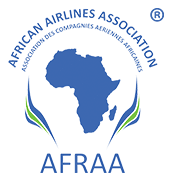The African aviation industry is grappling with a significant challenge: exorbitant taxes and charges levied on air passengers, hindering the sector’s growth and placing an undue burden on travelers. A recent report by the African Airlines Association (AFRAA) reveals a stark disparity between the average cost of international departure taxes in Africa and the global average, with African passengers paying $68 compared to the global average of $34. Within Africa, this discrepancy is further amplified, with some countries imposing significantly higher charges than others. Nigeria, for instance, ranks as the third most expensive country for air travel in Africa, with passengers paying an average of $180 in taxes and charges per international departure, nearly three times the continental average. This high cost environment places Nigerian travelers at a disadvantage and raises concerns about the competitiveness of the country’s aviation sector.
The AFRAA report identifies several factors contributing to the high cost of air travel in Africa. One key issue is the non-adherence to International Civil Aviation Organisation (ICAO) policies, which are designed to promote harmonization and efficiency in the aviation sector. The fragmented tax regimes across the continent, coupled with an overreliance on aviation as a source of government revenue, further exacerbate the problem. The perception of air transport as a luxury service leads governments, airports, and service providers to impose excessive charges on airlines, many of which are already struggling financially. This vicious cycle ultimately impacts travelers, who bear the brunt of these inflated costs.
The consequences of these excessive charges are far-reaching. High airfares discourage travel, hindering regional connectivity and impeding the growth of the aviation sector. The report highlights a concerning trend: the number of African countries charging passengers over $100 in taxes and fees has increased, indicating a worsening situation for both airlines and travelers. In Nigeria, the high operational costs, including taxes, airport fees, and fuel prices, contribute to airfares that are often more expensive than flights to some European destinations. This price disparity makes it more attractive for travelers to fly to other African countries or even further afield, bypassing Nigerian airports and impacting the local aviation industry.
Stakeholders within the Nigerian aviation industry have voiced concerns about the multiple charges levied by aviation authorities, including the Federal Airports Authority of Nigeria (FAAN). These charges, which encompass various fees such as landing fees, parking fees, and service charges, contribute significantly to the overall cost of air travel. Industry experts argue that these excessive charges are unsustainable and are driving travelers to neighboring countries where airfares are more competitive. This trend is particularly concerning for Nigeria, as it risks losing its competitive edge in regional air travel. The high costs also affect other sectors, such as agriculture, where exporters face challenges due to the high cost of airfreight, leading them to seek alternative routes through neighboring countries.
The Nigerian government has acknowledged these challenges and has taken some steps to address them. A significant move was the clearance of a backlog of nearly $900 million in trapped foreign airline revenues, a measure intended to stabilize the market and encourage airlines to adjust ticket prices downwards. The government also signed the Cape Town Convention Practice Direction, aiming to facilitate easier and more affordable aircraft leasing for Nigerian carriers, a move expected to reduce operational costs in the long run. Furthermore, the Ministry of Aviation has pledged support for domestic airlines in acquiring aircraft at more favorable rates and accessing global markets for better leasing and financing terms.
Despite these efforts, industry experts maintain that more comprehensive reforms are needed to address the root causes of the high cost of air travel in Nigeria. They advocate for a review of airport-related charges and a reduction in the multiple taxes levied on airlines. The current situation, where Nigerian travelers often find it cheaper to fly from neighboring countries, underscores the urgency of these reforms. Without significant changes, Nigeria risks losing its position as a key player in the regional aviation market and further impacting related sectors like tourism and trade. The focus should be on creating a sustainable and competitive aviation environment that benefits both airlines and passengers, ultimately contributing to the growth and development of the Nigerian economy.


